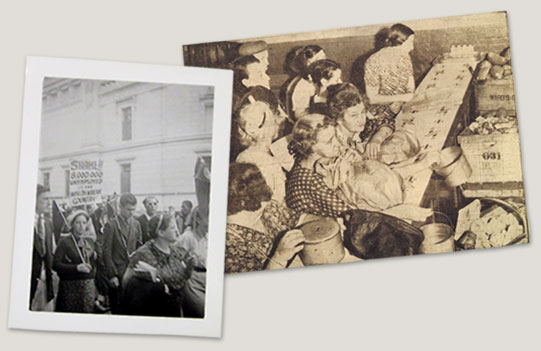Just a few weeks before the Hoboken poormaster was killed in his office, a nationwide recession had returned millions of Americans to the desperation of the Depression’s early days, when they had been forced to scavenge for scraps of food.
 Poster promoting the federal
Poster promoting the federalWorks Progress Administration.
Many of the new poor suffered quietly, burdened by hunger and exhaustion, and the stigma attached to poverty. But others organized to demand more aid. Across the United States, unemployed men and women gathered in meetings to plan protests. Some stormed poormasters’ offices, or reversed evictions by returning curbside belongings to the apartments of delinquent renters. Groups of jobless workers orchestrated “hunger marches” to state capitols, and some occupied assembly halls, showing their contempt for unresponsive legislators.
Watch newsreel footage on the early
years of the economic crisis.
years of the economic crisis.

A 1937 march on Washington by members of the Workers Alliance, a multi-state association of “works project” employees and the unemployed.
Men and women line up at a soup kitchen with lunch pails and sacks, hoping to take food home for their families. PM magazine photo.
